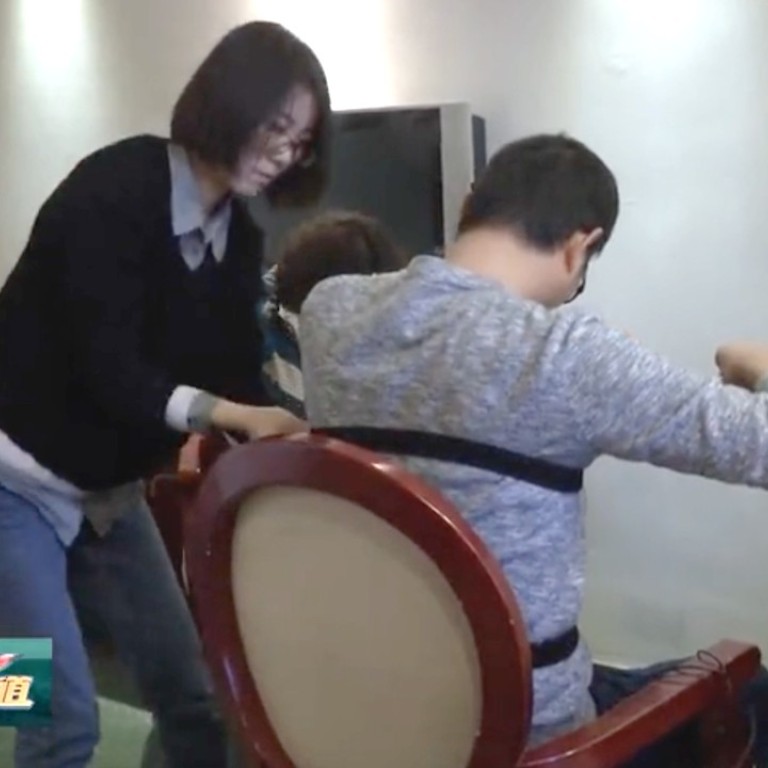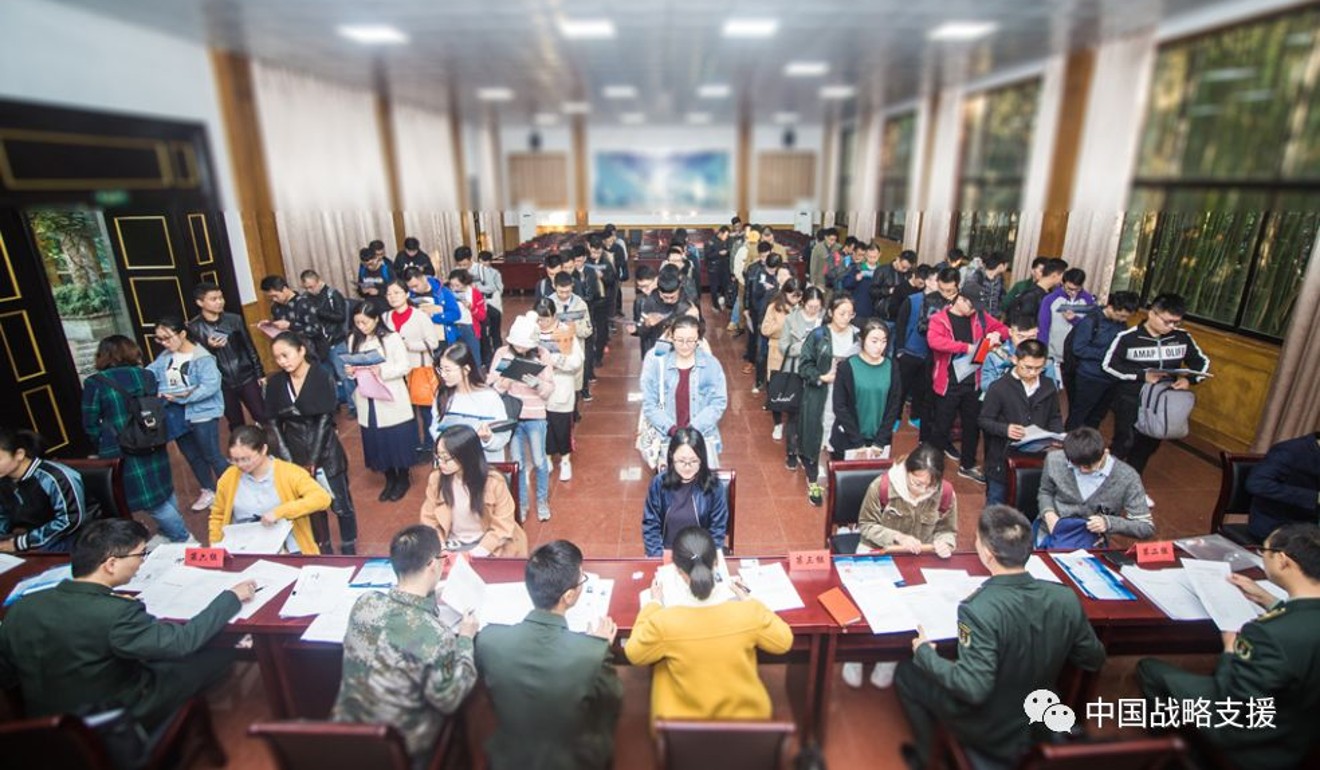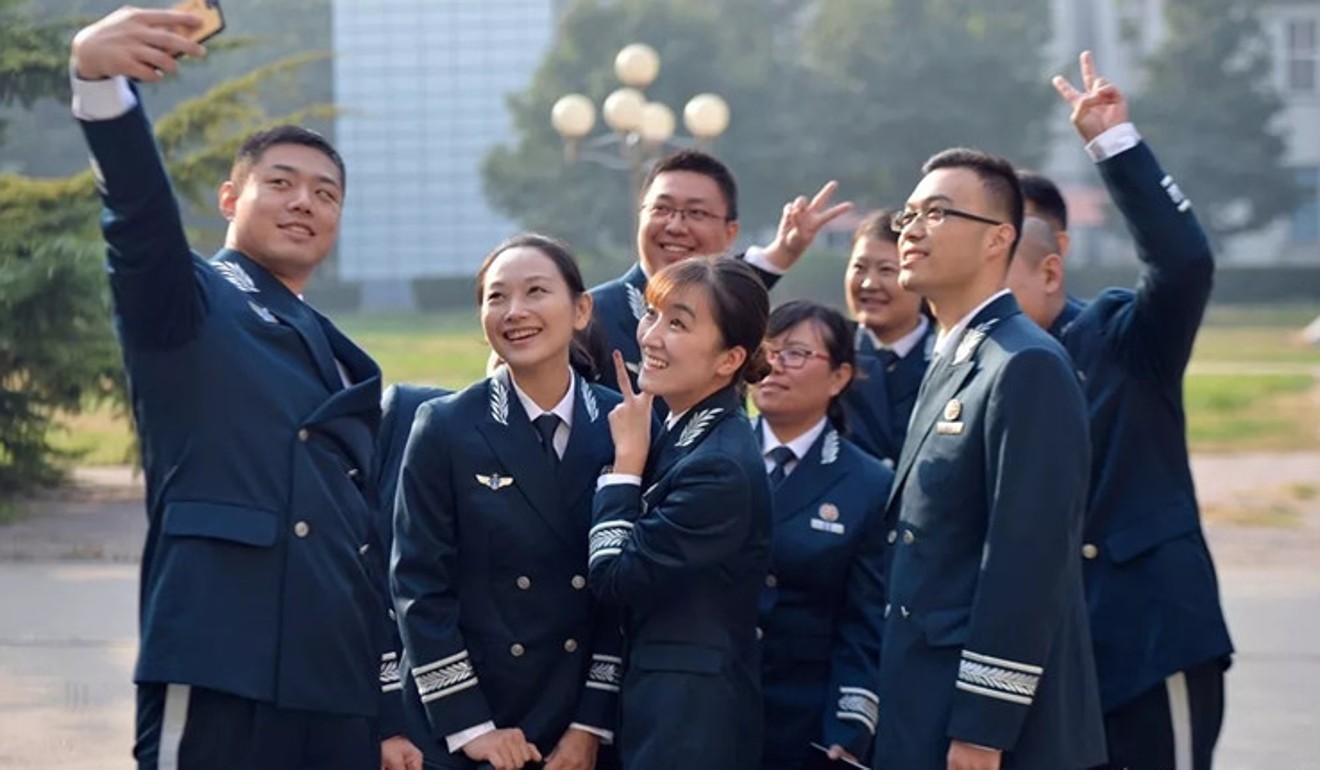
Chinese armed forces use ‘lie detectors’ to ensure loyalty of civilian staff hired to replace axed military personnel
- Southern Theatre Command takes ‘very rare’ step to ensure professionalism and loyalty of candidates as civilians slot into roles once held by non-combat military
A wing of the People’s Liberation Army has introduced “lie detector” tests for civilian job candidates, a move designed to make sure recruiters hire properly qualified and politically motivated staff, state media reported.
A video clip from official China Central Television in late November showed how Southern Theatre Command had used equipment to monitor the heartbeat and blood pressure of 18 candidates during tests.
The WeChat social media account of the Southern Theatre Command said this was the first time the military had used such technology as part of civilian personnel recruitment.
It said the 18 candidates took comprehensive political examinations, including psychological tests, face-to-face interviews and questionnaires, to evaluate their loyalty.
“All the assessment results form an important basis to decide which candidates will be hired,” the CCTV report said.
A former PLA lieutenant colonel said the video showed lie detector tests. He said that all candidates, including non-combat troops, had to take several rounds of political examinations, but that it was “very rare” to introduce detectors into testing.
The former officer, who served in a non-combat role, questioned the efficiency of using lie detectors in tests, but said such “symbolic practices” might indicate the theatre command’s willingness to adopt “innovative measures” to meet the requirements laid down by President Xi Jinping, who chairs the powerful Central Military Commission.
“Political examinations test candidates’ political status, whether they are unhappy with the ruling party and incumbent government, their family background and more,” the officer, who requested anonymity, said.
Tiananmen crackdown ignited a decade of debate on Chinese military’s role
Regular assessments would focus on questionnaires and face-to-face interviews, he said.
“Thanks to big data technology, today’s Chinese public security system can collect all kinds of personal information, so those kinds of psychological tests are meaningless. Some smart people are capable of fooling lie detectors.”
Macau-based military analyst Antony Wong Dong said that even if a candidate passed a lie detector test it did not mean they “could keep loyal and clean forever after joining the military”.
It is unclear what kinds of civilian staff the Southern Theatre Command is hiring. The PLA’s military talent website shows ground forces, the air force, the navy, the rocket force and other departments are hiring civilian personnel with expertise in medicine, accounting, engineering and law.

The military’s mouthpiece PLA Daily said China had hired 20,000 civilian personnel so far this year, and expected to recruit about 9,300 more by the end of 2018.
In order to distinguish military from civilian employees, the PLA designed and issued uniforms to civilian personnel in July this year, marking the army’s 91st birthday.
The PLA stepped up civilian recruitment after Xi announced plans in 2015 to cut 300,000 military non-combat roles, reducing the army to 2 million personnel.
Zeng Zhiping, a legal professor from Xiamen University’s Tan Kah Kee College, said an officer’s loyalty could be proved by his or her service, not just psychological tests.
“Professional loyalty, or even political correctness, could only be proved after the officers have undergone comprehensive training and education by the military and [it is there] the military can make sure they do not pick wrong people,” Zeng said.
How ‘reform and opening up’ triggered the transformation of China’s military
“The most important thing in pushing military reform is to establish fair, open and transparent training and promotion systems for both military and civilian officers, because only that can help the PLA retain professional and loyal talent.”
The decision to shed 300,000 personnel was part of Xi’s military overhaul, which also involved replacing seven military regions with five theatre commands, while the army’s four headquarters were replaced with 15 departments.
Two independent military sources told the South China Morning Pos t that Xi’s military reforms involved turning the leadership of military hospitals, courts, disciplinary inspection commissions, academia and other non-combat departments over to civilians. Such reforms were difficult because of a big gap in remuneration between military and civilian employees.

A spokesman for the defence ministry said the 300,000 lay-offs were completed by 2017, but the sources said many senior military officers – who believed they deserved better benefits than civilian cadres – refused to join the ranks of civilian personnel.
“For example, for principals of a pubic security university in Beijing who were major generals from the PLA’s armed police force – [their] military status entitled them to keep private cars, a secretary, and 20,000 yuan (US$2,900) of monthly pension after retirement,” one source said.
China’s army ‘infiltrated by peace disease’ after years without a war
“However, if the principal becomes a civilian officer, his pension will be cut in half, and there is no car, no secretary and other political privileges any longer.”
To fill the skills gap left by the troop cuts as quickly as possible, theatre commands and other subordinate units had to step up recruitment of civilian technicians working in hospitals, logistic departments, and other non-combat units to replace those from military ranks.

